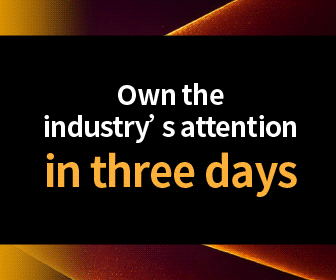In the medium to long term, the most likely candidate that could beat TSMC is not Samsung Electronics, but Intel. South Korea, like Taiwan, sees its advantage in hardware manufacturing and cost efficiency. Even its branding business success means more on the hardware side; it is neither one that sets the rules of the game nor a game changer.
Therefore, even if Samsung can threaten TSMC, it wouldn't be able to knock out or destroy TSMC. But Intel and the US government behind it are the world's top players who make the rules of the game. Once those trillion-dollar Internet giants join forces with Intel to reshape the framework of the game, Asian companies with manufacturing expertise will surely face a life-and-death challenge.
In a less radical scenario, the US-dominated framework of world order can integrate design tools, silicon IP, materials, and equipment suppliers, or take advantage of the differences in ESG definitions to gain the lead in international competition. When that happens, both TSMC and Samsung would be among those suffering.
Sun Tzu's Art of War says if you set the stage, the enemy will have to play along. The framework is set and you have no choice but fall within it. This is a good strategy: it doesn't have to use force. We have to be keenly aware that when a hegemonic power is facing a life-and-death crisis, its neighbors are also on the brink.
If its market value of KRW402 trillion as of the end of August 2022 is expressed in terms of US dollar at an exchange rate of 1,348:1, then Samsung Electronics' market value would be nearly US$300 billion. TSMC's market capitalization of about US$436.3 billion would be much higher than Samsung's - a difference of more than US$136 billion. It is worth noting that Samsung's cash on hand accounts for 30% of its market value, much higher than that of TSMC, Intel or Apple.
TSMC, for example, usually has cash on hand no more than 10% of its market value, and Apple is even lower. This means that Samsung has more resources to make international acquisitions. Will Samsung be the buyer of Arm? Since 2010, Samsung has had eight acquisitions of more than US$100 million each, the largest being the Harman acquisition in 2017. But Samsung's acquisitions don't seem to have made much of an impact on the market.
We haven't seen TSMC do any major M&As since its acquisition of Worldwide Semiconductor Manufacturing Corporation (WSMC) in 2000. And over the years, Intel has invested US$4.7 billion, and Apple nearly US$900 million. We really have to study the significance of the differences.
Samsung's PE ratio is only 8.5, but TSMC's is 15.9, showing that TSMC is more favored by investors. The main reason why Samsung is not as good as TSMC is that the whole business is too dependent on semiconductors, which in turn is too dependent on memory. As for the value of the brand business, it is too focused on consumer electronics and handsets. It cannot transform itself in the international market towards software-system integration - in the direction that HP and Dell have been heading.
Whether it is the emerging applications such as metaverse or LEO satellites, the rules of the game will definitely be determined by the US or China. This is the massive gap that Taiwan, South Korea, and even Japan, Germany and India may find it difficult to overcome.
(Editor's note: This is part of a series of 10 articles by DIGITIMES Asia president Colley Hwang about Samsung's outlook.)





